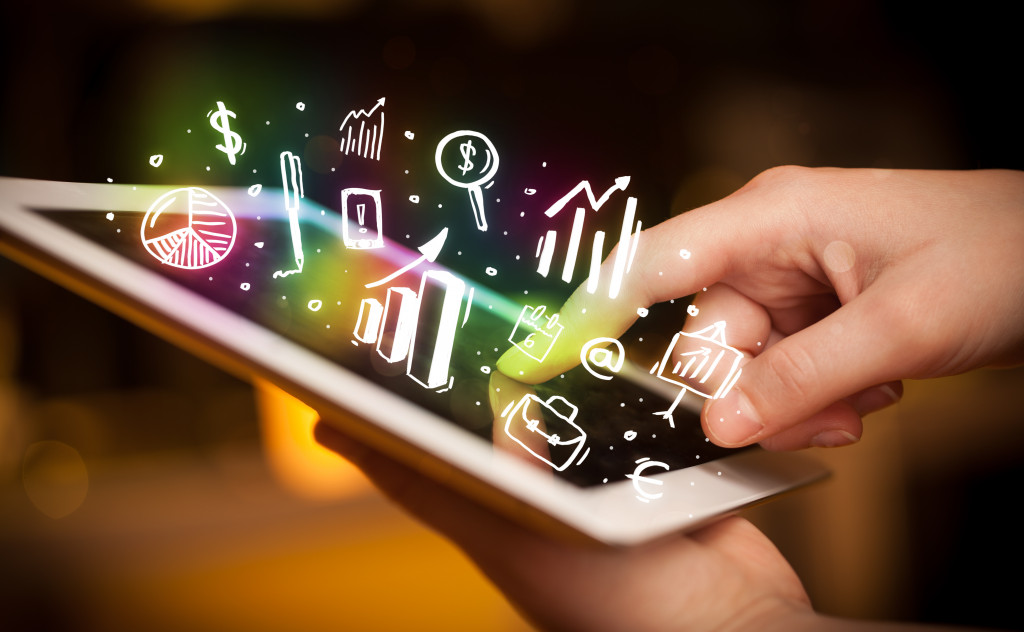- Assistive technologies such as grab bars, adaptive utensils, and powered mobility devices have enabled people with physical limitations to gain more independence.
- Wearable devices, voice-activated home assistants, and intelligent wheelchairs are assistive technology that can improve quality of life.
- Virtual reality rehabilitation has been used to help people with physical limitations recover strength, mobility, and function.
- Communication devices such as text-to-speech (TTS) and speech-to-text (STT) can help those who struggle with speaking or hearing.
People cannot deny that technology has been drastically improving and changing the world we live in. From the most straightforward household appliances to the most complex machinery, technology has been making our daily lives more accessible, more comfortable, and more efficient.
For people with physical limitations, technology can provide a significant impact that can dramatically improve their quality of life. This article will discuss technology’s benefits for those with physical limitations.
Accessibility Tools and Assistive Devices
Accessibility tools and assistive devices have been a massive game-changer for people with physical limitations. Assistive devices range from simple things such as grab bars and adaptive utensils to advanced communication systems and powered mobility devices such as wheelchairs and scooters.
These devices allow individuals with physical limitations to navigate their day-to-day life more comfortably and efficiently, reducing their reliance on caregivers and improving their overall independence.
Assistive Technologies

Assistive technologies for people with physical limitations rapidly advance and make independence more accessible. These technologies can range from wearable devices that monitor vital signs to voice-activated home assistants that control the lights and temperature. Additionally, assistive technologies can help with mobility, such as intelligent wheelchairs and exoskeletons.
On the other hand, there’s also a solution for people with hearing problems. For instance, by utilizing computer software designed for deaf people, individuals can access conversations in real-time and understand what is being said. This kind of technology provides unprecedented independence and empowerment for people with hearing impairments and gives them a chance to communicate more effectively.
Virtual Reality Rehabilitation
Virtual reality rehabilitation is a novel use of technology that aims to help people with physical limitations recover their strength, mobility, and function. VR rehabilitation uses a computer-generated environment that simulates real-life scenarios to train and exercises an individual’s impaired areas.
It is beneficial for individuals who are recovering from a stroke, an injury, or surgery. This type of technology provides a safer environment, encourages an individual’s willingness to participate, and allows them to progress more quickly.
Communication Devices
Communication devices such as text-to-speech (TTS) and speech-to-text (STT) are helpful for individuals with physical limitations with difficulty speaking or hearing. These devices enable users to communicate with others and participate in activities through written or spoken language.
These devices help individuals with physical limitations communicate with others without having to rely on a caregiver or family member.
Smart Home Technologies
Innovative home technologies have revolutionized the way we live our daily lives. They have made our homes more energy-efficient, secure, and convenient. These technologies have made life a lot easier and more comfortable for people with physical limitations.
Smart speakers
Smart speakers, such as Amazon Echo and Google Home, are voice-activated personal assistants that can perform various tasks. For people with physical limitations, these speakers can be extremely helpful in managing their daily routines.
They can turn lights on and off, change the temperature, make phone calls, and even order groceries. The voice-activated feature eliminates the need for manual operation, making it perfect for people who find it challenging to move around.
Smart door locks

Intelligent door locks can be controlled through a mobile app or a key fob, eliminating the need for traditional keys. This can be very helpful for people with physical limitations who may have trouble turning keys or opening doors. Smart locks can be programmed to unlock when the user approaches the door, making it easier to enter the house without fumbling for keys.
Smart lights
Bright lights can be set up automatically when someone enters the room. This can benefit people with physical limitations who may struggle to reach the light switch. Bright lights can also be voice-activated, eliminating the need for manual operation.
Smart thermostats
Smart thermostats can be controlled through a mobile app or voice-activated assistant. This means that people with physical limitations can adjust the temperature of their homes without moving around. Smart thermostats can also be programmed to turn on or off at specific times, ensuring the user is always comfortable.
Final Thoughts
The impact of technology on people with physical limitations has been transformative. Technology has provided new solutions to once-insurmountable obstacles, enabling individuals to gain more independence, improve their quality of life, and participate more fully in their communities.
With the exponential growth of technology, we can only speculate on how much more of an impact it will have in the future. Technology will continue to prove groundbreaking and provide solutions to enhance the lives of individuals with physical limitations.
